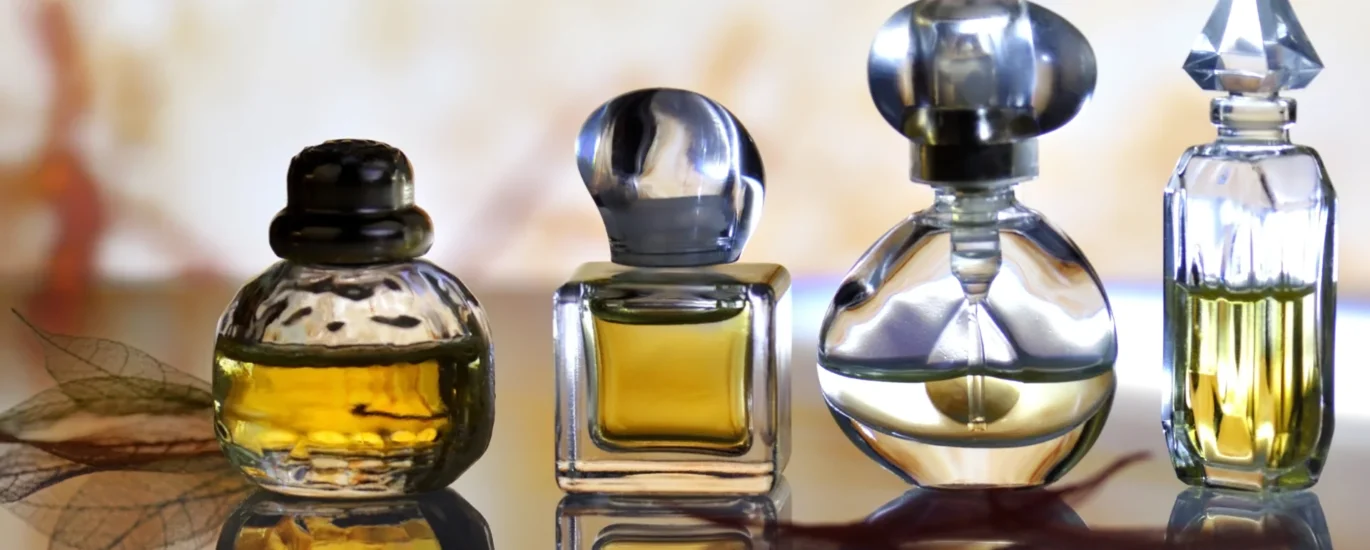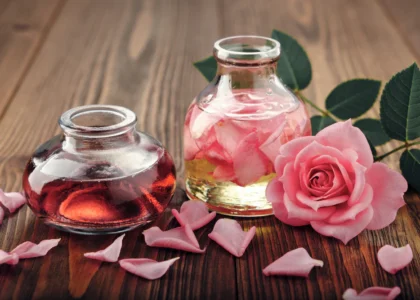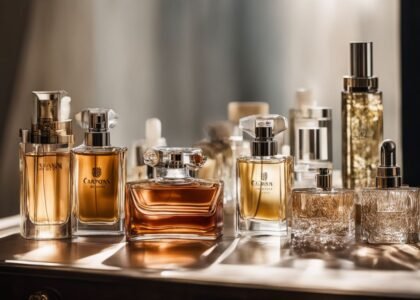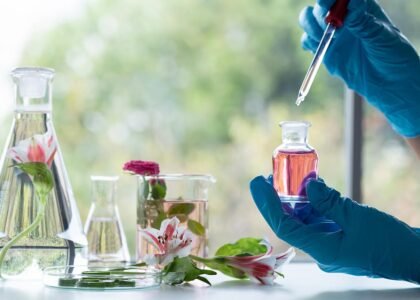When you walk into a perfume store and test fragrances, you’re usually relying on a tester bottle to get a sense of how a scent might smell on your skin. These testers are intended to help you decide if you want to invest in a full-sized bottle. However, many people don’t realize that these testers, which are often exposed to air, light, and fluctuating temperatures, might not reflect the fragrance’s original scent. If you’ve ever been disappointed by how a perfume tester smells compared to what you remember from the last time you tried it, you’re not alone.
As a perfume expert and consultant, I’ve seen how environmental factors can alter the delicate balance of a fragrance, making it important for consumers to understand how to assess perfumes accurately. In this blog post, I will explain why perfume testers might not always provide an accurate representation of a perfume’s true scent, and how consulting with an experienced perfume expert can help you navigate the complexities of scent evaluation.
The Aging Process of Perfume Testers
Perfumes are carefully crafted compositions that are sensitive to various environmental influences. When you purchase a bottle of perfume, you’re getting a carefully balanced fragrance that has been protected from light, air, and heat until it reaches your hands. However, testers are often displayed for long periods in stores, which means they can undergo several changes before you smell them. Here are some of the key factors that can impact the fragrance:
1. Light Exposure
Perfumes are highly sensitive to light, particularly ultraviolet (UV) rays. When perfume testers are placed in direct light, either from store windows or artificial lighting, UV radiation can break down the fragrance’s components. This degradation may alter the scent, especially the top notes, which are the most volatile and change the quickest when exposed to light. The result is a perfume that smells less fresh and more “stale” compared to a newly sealed bottle.
2. Air Exposure
Every time a tester bottle is opened, air enters and interacts with the perfume. Oxygen can cause a chemical reaction in the fragrance, leading to oxidation. Over time, oxidation can alter the fragrance’s notes, causing it to smell different than when it was first produced. This is especially true for perfumes with delicate notes such as citrus or florals, which tend to degrade more quickly when exposed to air.
3. Temperature Changes
Perfumes should be stored in a consistent, cool environment, away from direct heat. Fluctuating temperatures can accelerate the breakdown of perfume’s molecules, causing the fragrance to change over time. In stores, temperature conditions can vary depending on the season, air conditioning, or heating systems, which can affect how a tester smells. Extreme heat, in particular, can cause a perfume to lose its top notes, leaving a scent that’s heavier on base notes like musk or amber.
Why Tester Bottles Aren’t Always Reliable
While testers are helpful tools, they are not always the best representation of how a perfume will smell when it’s fresh. Testers are often used and opened multiple times by customers, which means the fragrance has been exposed to air and light numerous times. Even though stores try to replenish testers regularly, it’s common for these bottles to be several weeks or even months old, particularly in large department stores with high foot traffic.
As a perfume expert, I always recommend that consumers ask to test a sealed bottle or, better yet, request a sample from the store. This ensures you’re experiencing the fragrance at its peak, just as it was intended by the perfumer. A perfume consultant can also guide you through the proper testing process, helping you discern the true nature of a fragrance without the interference of environmental changes that occur with testers.
The Role of Parush Khanna, Perfume Expert
Parush Khanna, a well-respected perfume expert in the industry, emphasizes the importance of experiencing a fragrance at its best. He regularly works with brands, retailers, and customers to ensure that perfumes are handled and stored in optimal conditions. As a perfume consultant, Parush educates consumers about how to test perfumes properly and what factors to consider when choosing a scent.
For example, Parush advises against testing perfumes in overly fragranced environments, such as near other strong perfumes or scented products like candles. The surrounding smells can alter your perception of the perfume, making it difficult to get an accurate sense of its true character. In his consultations, he often discusses how to store perfumes at home, offering guidance on how to preserve the freshness and longevity of the fragrance.
Berry Ardens Perfumes: Preserving Fragrance Integrity
One brand that exemplifies the importance of freshness and fragrance preservation is Berry Ardens perfumes. Known for their sophisticated and layered scents, Berry Ardens puts a significant focus on ensuring their perfumes remain as fresh as when they were first created. The brand takes meticulous care in ensuring their bottles are sealed and stored in ways that prevent any premature aging. When you purchase a Berry Ardens perfume, you can trust that it has been carefully handled to preserve the integrity of its complex notes.
Working with a perfume consultant can help you find perfumes like Berry Ardens that prioritize scent preservation, ensuring you’re getting a fragrance that hasn’t been exposed to light, air, or heat for extended periods. Consultants can also recommend perfumes based on your preferences and skin chemistry, helping you find the perfect scent without relying on imperfect testers.
How to Protect Your Perfumes at Home
Once you’ve found your perfect fragrance, it’s important to store it properly to maintain its original scent. Here are some tips for preserving your perfume at home:
- Store in a cool, dark place: Perfumes should be kept away from direct sunlight, heat, and humidity. A dark cabinet or drawer is ideal.
- Seal tightly after each use: This minimizes the amount of air that enters the bottle and helps slow down oxidation.
- Avoid bathrooms: The fluctuating temperature and humidity in bathrooms can be harmful to your perfume’s longevity.
By following these simple guidelines, you can ensure that your perfume remains fresh and vibrant for as long as possible.
Conclusion
While perfume testers in stores provide a helpful starting point, they may not always offer the most accurate representation of a perfume’s true scent. The exposure to light, air, and fluctuating temperatures can degrade a fragrance, making it important to seek out a perfume expert or perfume consultant for guidance. Professionals like Parush Khanna can help you navigate the world of perfume, ensuring that you’re experiencing the fragrance as it was intended to be smelled. If you’re exploring Berry Ardens perfumes or any other brand, taking the right steps to test and store your fragrances will ensure that you always enjoy their full, original beauty.





